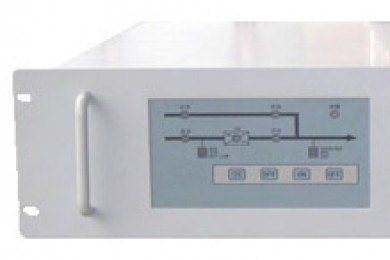
Hybrid electric vehicles (HEVs) combine traditional internal combustion engines with electric propulsion systems to enhance fuel efficiency and reduce emissions. As the automotive industry shifts toward greener technologies, HEVs have emerged as a popular alternative, offering the best of both worlds. At the core of this innovative solution lies the inverter, a crucial component that plays a significant role in optimizing the performance of hybrid systems.
Inverters serve as the bridge between the electric motor and the battery pack in hybrid electric vehicles. Their primary function is to convert direct current (DC) from the batteries into alternating current (AC) required by the electric motor. This conversion is essential for managing the energy flow between the battery and the motor, ensuring efficient operation and performance in various driving conditions.
One of the key benefits of inverters in HEVs is their ability to improve energy management. By cleverly controlling the energy flow, inverters enable the vehicle to switch seamlessly between electric and gasoline power. This flexibility empowers HEVs to utilize electric power when cruising or in stop-and-go traffic while leveraging the engine for added acceleration or long-distance travel. Consequently, this results in significant improvements in fuel efficiency and overall vehicle performance.
Modern inverters are increasingly equipped with advanced technology such as regenerative braking systems. This feature allows the vehicle to capture energy that would otherwise be lost during braking and channel it back into the battery. This smart energy recovery process not only enhances battery life but also contributes to the overall efficiency of the vehicle. Moreover, innovations in inverter design, such as the use of silicon carbide (SiC) technology, are pushing the boundaries of efficiency, further minimizing energy losses in the conversion process.
As the demand for environmentally friendly transportation continues to rise, the development of inverters in hybrid electric vehicles is expected to advance rapidly. Future innovations may focus on reducing the size and weight of inverters while enhancing their performance and efficiency. Moreover, with the integration of smart grids and V2G (Vehicle to Grid) technologies, inverters may play a vital role in transforming HEVs into power resources for homes and communities, showcasing their potential beyond mere vehicle propulsion.
Inverters are undeniably a fundamental component of hybrid electric vehicles, driving innovation and improving energy efficiency. As technology progresses, these devices will continue to shape the future of HEVs, enabling them to become more powerful, efficient, and sustainable. By seamlessly blending traditional and electric propulsion, inverters not only enhance the driving experience but also contribute to a more environmentally sustainable future in transportation.
Next:Exploring the Similarities and Differences Between Photovoltaic Inverters and Energy Storage Convert
Previous:The Essential Differences Between Photovoltaic Inverters and Energy Storage Inverters